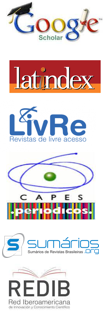Autorregulação da Aprendizagem Matemática no Ensino Médio: um Estudo com Alunos da Rede Pública de Belo Horizonte
DOI:
https://doi.org/10.17921/2447-8733.2023v24n4p658-666Resumo
Autorregulação da Aprendizagem (AA) é um processo, por meio do qual o estudante administra a sua aprendizagem de forma consciente, autônoma e proativa. Não é uma qualidade inata do sujeito. É uma habilidade que se adquire ao longo da vida e pode ser aprendida na escola, podendo contribuir para melhorar o desempenho e a motivação para aprender. Este artigo, recorte de uma dissertação de mestrado na área da Educação Matemática, tem por objetivo apresentar, de forma sucinta, o caminho percorrido em uma pesquisa qualitativa, que investigou possíveis contribuições que uma proposta de intervenção pedagógica, com vistas à promoção da Autorregulação da Aprendizagem Matemática, trouxe para a vida escolar de estudantes do Ensino Médio. Fundamentados na Teoria Social Cognitiva de Albert Bandura e no modelo de Autorregulação da Aprendizagem de Zimmerman (2002), elaboramos uma intervenção pedagógica desenvolvida com uma turma do 3º ano do Ensino Médio de uma escola estadual da cidade de Belo Horizonte. Para a coleta de dados, além das observações das sessões, foram aplicados questionários antes e depois da implementação da proposta pedagógica, pré-teste e pós-teste para avaliar os conhecimentos dos estudantes acerca do conteúdo de Matemática Financeira, com o viés da Educação Financeira. Os resultados revelaram que os estudantes aprenderam a estabelecer metas, planejar, gerenciar o tempo, organizar os espaços de estudo, além de autorrefletir sobre suas escolhas, com autonomia para modificá-las.
Palavras-chave: Aprendizagem. Educação Matemática. Ensino Médio.
Abstract
Self-Regulation of learning is a process through which students manage their learning in a conscious, autonomous and proactive way. It is not an innate quality of the subject. It is a skill that is acquired throughout life and can be learned at school, which can contribute to improving performance and motivation to learn. This article, part of a master's thesis, in the area of Mathematics Education, aims to present, in summary, the path taken in a qualitative research, that investigated contributions that a proposal of pedagogical intervention, with a view to promoting the Self-regulation of Mathematics Learning, brought to the academic life of high school students. Based on Albert Bandura's Social Cognitive Theory and Zimmerman's (2002) model of Self-Regulation of Learning, we designed a pedagogical intervention to be developed with a third-year high school class at a state school in the city of Belo Horizonte. For data collection, in addition to the observations of the sessions, questionnaires were applied before and after the implementation of the pedagogical proposal, pre-test and post-test to assess the students' knowledge about the content of Financial Mathematics, with a bias of Financial Education and semi-structured interviews to investigate issues not addressed in depth in other instruments. The results revealed that students learned to set goals, plan, manage time, organize study spaces, in addition to self-reflecting on their choices, with autonomy to modify them.
Keywords: Learning. Mathematics Education. High School.
Downloads
Publicado
Como Citar
Edição
Seção
Licença
Copyright (c) 2024 Revista de Ensino, Educação e Ciências Humanas

Este trabalho está licenciado sob uma licença Creative Commons Attribution-NonCommercial-NoDerivatives 4.0 International License.


